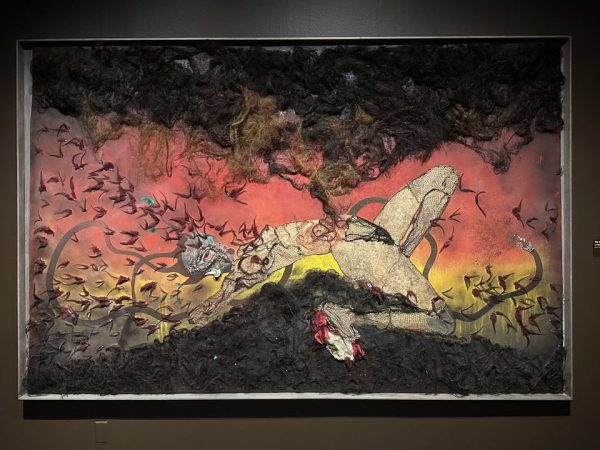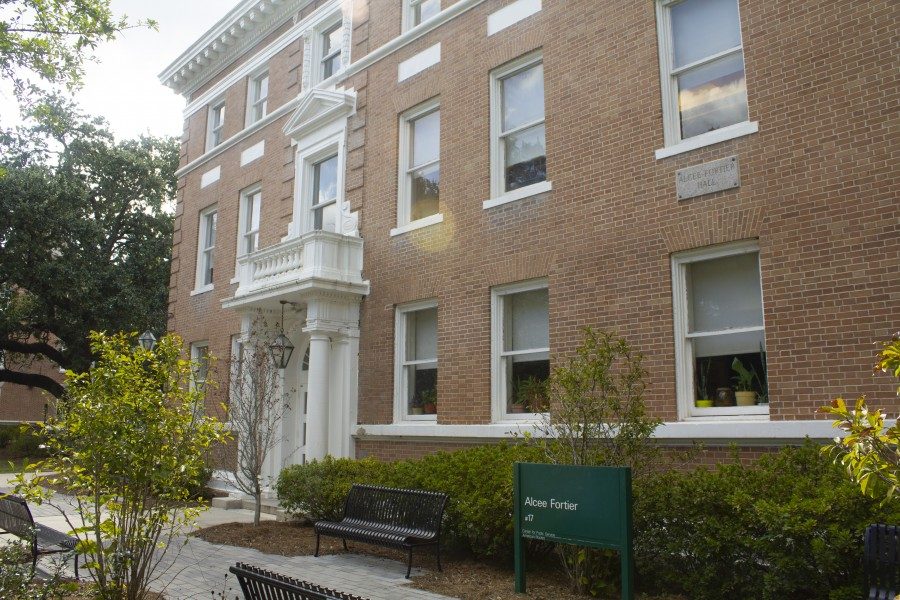Summer School Tuition to be charged for all CPS Summer Internships
Sofia Viscuso | Photography Editor
Tulane’s Center of Public Service
September 19, 2019
During an annual summer review of Center for Public Service programs, staff members noticed inconsistencies in the second-tier service learning summer internship program. Some departments had allowed students to apply summer internship credit to their fall semester schedule, meaning these students were able to avoid paying a summer school tuition bill, while others had to pay for the cost of a course.
Following this realization, all CPS summer internships will now be categorized as summer school, and students must pay tuition for the course to receive credit.
Tier-one service learning credit can only be earned through the completion of a service learning course between the 1000-3000 level. Students must earn this credit no later than their fifth semester of full-time enrollment at Tulane.
After completing this course, students must satisfy their second-tier service learning requirement. They can fulfil this requirement by taking a second-tier service learning course, completing an academic service learning internship, participating in a faculty-sponsored public service research project, completing a public service honors thesis project, participating in a public-service-based international study abroad program or participating in a capstone experience with a public service component.
“The [summer] internship program has been the most popular one because you can do that from anywhere domestically, so you could be back home and find an internship and do it there,” Bridget Smith, assistant director of Service Learning, said.
Students who opt for a summer internship are required to enroll in an online course in addition to completing an unpaid summer internship approved by the Center for Public Service.
For many of these students, the three- or four-credit internship course they had taken in the summer was applied to their fall semester schedule, allowing them to bypass a summer tuition bill. There will be a change in the policy beginning summer 2020, however, as all summer internships with intent to receive academic credit will be considered summer school and will cost the same as tuition for a summer class.
“Students all over the university pay for summer school, and, even within the internship program, there are students that are paying for summer tuition for their internship because of the way the department has things set up,” Katie Houck, associate director for the Center for Public Service, said. “So this isn’t really a new policy. It’s just bringing the rest of the program in line with the rest of the university guidelines and policies that always existed.”
Members of the Center for Public Service staff decided to eliminate the discrepancies in the summer internship program.
“I know, for example, communications students always had to pay tuition over the summer, so it was kind of inequitable that depending on your discipline, some people had to pay and others don’t,” Houck said.
This inconsistency raises another issue regarding the application of credit hours to the fall semester for students who have already completed a course in the summer. For many students who needed to take a large number of credits for their majors, this allocation of credit became a limiting factor.
“Something our students constantly come up against is that you can take up to a certain amount of credit hours in a semester without there being an issue,” Houck said. “So a lot of students would do the internship over the summer, then the credit would be applied in the fall, but then they had to get special dispensation because they’re actually taking 18 credit hours in the fall, and the extra summer internship puts them over the edge of that.”
The change in policy ensures the course credits would be attributed to the semester the student completes the course, freeing up room for students to take other required courses.
The cost of summer tuition to complete an unpaid internship, however, may be a limiting factor for some students.
“It might be that less people [will decide to do a summer internship] because tuition is a barrier, but I do know that the Center for Academic Equity is a great resource any time students want to do an internship where finances are a barrier. They can give financial help to make it more possible,” Smith said.
Due to the financial burden the summer tuition may impose, CPS is working out ways to ensure scholarships and grants will be applied to these programs, creating other programs and spreading the word that there are many other ways besides an internship to complete a second-tier service learning requirement. One of CPS’s focuses has been the creation of more second-tier service learning classes.
“We’re always trying to make more upper-tier service learning options. It’s on faculty to try to create them, so it’s not like we’re making them. We’re constantly trying to encourage faculty to attend our service learning seminar to learn how to create a service learning course,” Smith said.
There are also course development grants for faculty looking to create upper-tier service learning classes.
“If students want to help, and if you’ve taken a class that you think the faculty is engaged and passionate and the content could lend itself to service learning, come to us or we’ll reach out together. We basically are trying to find the best fits and encourage faculty to do it,” Smith said.
As the change’s implementation will take place this summer, the student body has not had much opportunity to offer feedback, but staff members at the Center for Public Service are hopeful the internship program will continue to be very popular among students even if the decision to receive academic credit over the summer is less popular.
“For me, it would be interesting to see the whole year because now maybe students who would have done it in the summer will now do it in the fall or spring. If the number overall remains the same then it doesn’t really matter,” CPS Executive Director Agnieszka Nance said. “Our community partners want Tulane students to do those internships. They really like working with Tulane students.”
Many students took advantage of the ability to complete their internship with a greater time flexibility as the summer is typically less busy than the fall or spring. For some students, completing the 60-hour community service requirement may be difficult as they balance it with the rest of their course load.
CPS also offers an international study program for around the same price as the current tuition for an internship. Smith named the Tulane Himalayan Experience in which students work with Buddhist monks and Tibetan refugees in Northern India as well as domestic programs including Judy Maxwell’s anthropology course that helps to preserve the language of the Tunica tribe language, the last known speaker of which died in 1948.
Houck recommended that for students who want to learn more about the program and other second-tier service learning options to attend the CPS internship fair on Nov. 6 in the Lavin-Bernick Center for University Life’s Qatar Ballroom.






















Kelly Ann Gindhart • Sep 25, 2019 at 7:49 pm
Not only do students have to commit 60 hours of unpaid work to an organization for credit (which often means they can’t have full-time internship positions that would be more beneficial to starting a career than a two day per week gig), but now students have to pay Tulane so that they can work 60 hours for an outside organization? It doesn’t add up in my book. This past summer I did my CPS internship and because it was unpaid, I had to get a second job to earn money to pay for food and rent. Will this policy apply to me now? I already completed the internship, but the credits are tacked onto my course load for this current semester. If anyone knows, let me know!
Tulane doesn’t seem to care about the financial burden this places on students, especially for those who don’t have many opportunities to complete their second-tier service credit through courses offered during the school year. As a business student, there were only a few classes offered towards cps credit, and none of them aligned with my major. So if I wanted to get my cps credit during the school year, I would have had to take a course and do an internship in a field I’m not majoring in.
wack • Sep 24, 2019 at 5:51 pm
this is wack